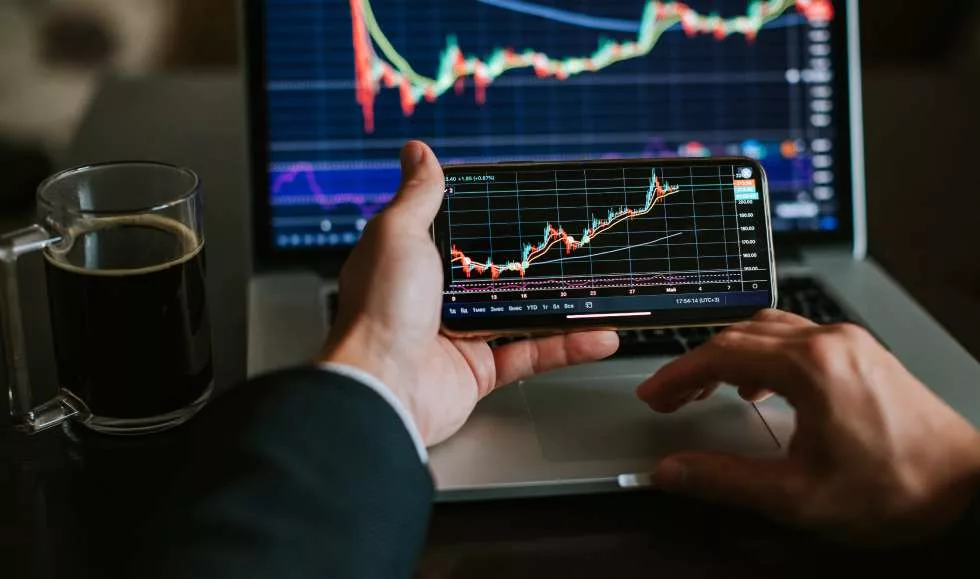What is a Broker?
In simple terms, a broker is a person or entity who behaves as a mediator that connects an investor and a securities exchange. As securities exchanges just receive orders from individuals or firms who are that exchange’s members, that’s why individual traders and investors need the services of exchange members. Brokers offer the service and are charged in a variety of ways, including commissions, fees, and other incentives.
What is a Forex Broker?
Forex Broker is a financial service entity that acts as an intermediary between a trader and the market. Broker offers traders access to entering a platform to buy and sell foreign currencies. In the forex market, transactions always take place between two separate currencies.Most FOREX brokers offer traders an opportunity not only to trade currency pairs but also other asset classes including indices, metals, energy, cryptocurrency, etc. A forex broker may also be widely recognized as a retail forex broker or a currency trading broker.
What does a Forex Broker do?
We know, a forex broker works as a middle-man between traders and the interbank system. Interbank refers to networks of banks that trade with each other. Normally, a Forex Broker offers traders a price from those banks with credit lines and Forex liquidity access. Multiple banks are being used by many forex brokers and the best available will be offered to you. Most brokers allow traders to trade in different currencies. By buying a currency pair, a trader opens a trade, by selling the same pair he closes the trade. For instance, the EUR/USD pair is purchased by a trader who wants to trade euros on US dollars. This is equivalent to buying US dollars for euros. The trader sells the pair to close the trade which is equivalent to the purchase of U.S. dollars with euros. If the currency rate is higher when the trader closes the trade, the trader makes a profit. If not, the trader will lose.
Broker also provides customer-oriented services include tutorials, bonuses, contests, and investment services such as copy trading, PAMM/MAM, cash, IB Module, etc. are the additional benefit that a broker can provide clients.
How Forex Brokers Make Money?
Two ways are compensated for forex brokers.
The first one is a currency pair’s bidding process. For instance, the price of the Euro-U.S. dollar pair at bidding price 1.20010 and asking price and the spread is 1.2 pips. The Forex broker will collect the spread amount when a retail customer opens a position at the asking price and later closes the position at the bidding price.
The second one is additional fees. Some brokers charge extra fees. Certain monthly charges for access to a software interface or fees for accessing special trading products such as exotic options.
What is a White-label Forex Broker?

White Label is the best effective solution, allowing brokers to set their Forex brokerage in a short time and eliminate barriers to entry on the market. It is suitable for those wanting a Forex brokerage with their own brand name in the industry.
Role of a White-label Forex Broker
Brokers from white label run their companies on a different scale than IBs. They have their own risk management systems, PSPs, client assistance, etc.
White Label agreements can consider taking several forms from leasing a commercial platform and support from the back office to a complete company with its own brand.
Besides that, they offer –
- All aspects including the latest technology, legal aspects, website developments, marketing programs.
- Quick start of a broker with regular support.
- Reduce setting up and maintaining the cost of an entire business model that requires a license to work, acquires experience in the company, operates your own independent brokerage, works rather than referring to clients.
- An efficient way for the broker to diversify the income flow from licensing income.
Full-licensed Vs White-label ; Choose the best One

As the monthly maintenance fee and other expenses of white-label forex brokers are relatively lower than a full licenced broker, most brokers prefer to have white label licence to start their brokerage. At the same time forex white label brokers do not have to be worried to set up and maintain server with server locations and stay up-to-date at different corners of the globe. Using a White Label platform; this needs will be managed by the technology provider.
On the other hand, full-licensed brokers have to set up their brokerages from the scratch which is not only costly but also time-consuming.
Main advantages of White-label are :
Lower Entry Restrictions : White label brokers have the same position in the market as a full licensed broker with lower initial cost. By paying a monthly fee, brokers can have the services from the MT4.
Simple Maintenance : White-label Brokers do not have to deal with renting servers. They also do not need to know about the technical trading platform.
Easy to use platform : It is not a complex or sophisticated platform. It is one of the most accessible and comfortable trading platforms. All that is required is to use the white label platform tools and to practice them.
Final words

Summing up, the white-label solution can be regarded as a smart way to take the first steps in the world of brokerage without huge costs.
As the business grows, it is never late to switch to the server-owner model.

